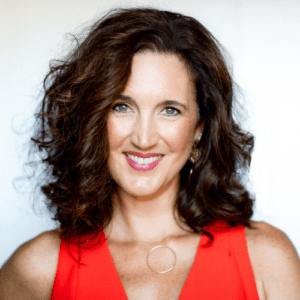By now, most Americans are likely to have heard about the major question surrounding autism spectrum disorders (ASDs): what causes autism? The debates surrounding this question are highly politicized and often acrimonious. Is there an autism epidemic? Is autism caused by purely genetic factors, purely environmental factors, or a combination of both? Is autism preventable and treatable? Is the increasing number of vaccines recommended for children putting them at risk?
The more contentious of these controversies is whether there’s a link between Thimerosal (a mercury-based vaccine preservative) and autism. Several well-publicized studies reported in mainstream medical journals have found no evidence of a connection. However, because of parental concerns, in 2001, the FDA began to reduce the amount of Thimerosal in most vaccines. At this point, the most widely used vaccines contain only a “trace” amount of Thimerosal, yet the most recent data, gathered from children referred to the California Department of Developmental Services System from March 2007, show no decline in the incidence of autism in those children, but rather a continuing increase, reports WebMD.
Other studies have found a strong connection, and have critiqued the methodology of the studies that have found no connection. Last spring, a 9-year-old girl with autism, Hannah Poling, made history when a federal court ruled that she was predisposed to autism because of an underlying mitochondrial disorder and that her condition was “significantly aggravated” by vaccinations. Then in February 2009, the judges of a special federal vaccine court appeared to contradict the earlier ruling, finding that there was no demonstrated link between the measles-mumps-rubella vaccine or the vaccine in combination with Thimerosal and autism in three preliminary cases they reviewed. In fact, one of the special judges, who’d collectively reviewed 5,000 pages of testimony and 939 medical articles, noted that the evidence was overwhelmingly against the link, according to the New York Times.
Yet there still appears to be science on both sides of the issue, and parents of affected kids are fighting on both sides. The number of children diagnosed with autism has skyrocketed since the 1980s, when the autism rate was 1 in 10,000. Today autism affects 1 in 150 children (66 per 10,000). Some argue that the increase is due to better diagnosis and changes in diagnostic criteria, as we now think about autism as a spectrum disorder (http://www.cdc.gov/ncbddd/autism/faq_prevalence.htm). Additionally, there are now reporting requirements for the schools, which had never had to report autism cases before 1991. According to the “no-epidemic” people, many now diagnosed with autism wouldn’t have received that diagnosis before 1994 (including, possibly, Brian). According to the “yes-epidemic” people, the vast majority of cases of ASDs aren’t the Brians of the world, but the more severely affected children who’d always have been diagnosed with autism. The “yes-epidemic” people say there are now many more of those children. The whole issue of counting and determining who has autism and who doesn’t is astonishingly complex, given the facts that there are no medical tests for the ailment, and diagnosis is based entirely on behavior.
A further complication is that some researchers, activists, and parents state that while Thimerosal certainly has seemed to be a likely suspect, it isn’t the only suspect. The number of vaccines given to children in the first few years of life has grown rapidly in the last 20 years. In 1988, babies received 10 vaccinations. Today, they receive 36. This is an increase of 260 percent.
Beyond Thimerosal, other vaccine ingredients (aluminum, formaldehyde, and monkey kidney cells, to name a few) appear troubling. In addition, the cumulative effects of the entire vaccine schedule recommended by the American Academy of Pediatrics has never been studied. Doctors who believe that vaccines and the current vaccine schedule are safe state that the amount of the troubling ingredients is small: and that safety testing is adequate. But many critics are increasingly convinced of the link between vaccination and autism, and argue that much of the opposition to this idea stems from a reluctance to recognize the possibility that modern medicine may be playing a role in damaging a generation of children.
Some even take this argument further and believe that exposure to a wide range of chemicals is implicated in the increase in the incidence of autism. There are an estimated 85,000 household chemicals on the market, of which a mere 20 to 30 have been safety-tested for effects on neurodevelopment. We have no idea of what they’re doing to any of us, much less to children who may have preexisting vulnerabilities.
Increasingly, researchers are investigating autism as a complex multisystemic, environmentally affected condition—not just a hardwired brain state, but “an ongoing biological process.”
This article first appeared in the July/August 2009 issue.
Alexandra Solomon
Alexandra H. Solomon, PhD, is internationally recognized as one of today’s most trusted voices in the world of relationships, and her framework of Relational Self-Awareness has reached millions of people around the globe. A couples therapist, speaker, author, professor, podcast host, retreat leader, and media personality, Dr. Solomon is passionate about translating cutting-edge research and clinical wisdom into practical tools people can use to bring awareness, curiosity, and authenticity to their relationships. She is a clinician educator and a frequent contributor to academic journals and research, and she translates her academic and therapeutic experience to the public through her popular and vibrant Instagram page, which has garnered over 200K followers. She is on faculty in the School of Education and Social Policy at Northwestern University and is a licensed clinical psychologist at The Family Institute at Northwestern University. Her hit podcast, Reimagining Love, has reached listeners across the globe and features high-profile guests from the worlds of therapy, academia, and pop culture. Her latest bestselling book is Love Every Day. You can visit her online at DrAlexandraSolomon.com and on Instagram at @dr.alexandra.solomon.













